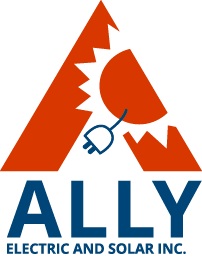Understanding Electric Vehicles
Electric vehicles operate on electric power rather than traditional fuel, offering numerous benefits, including reduced emissions and lower operating costs. With advancements in battery technology and performance, today’s EVs not only provide impressive ranges but also deliver a driving experience that’s smooth and responsive.
Making Informed Choices
Choosing the right electric vehicle can feel overwhelming, but we’re here to simplify the process for you. Start by considering your driving habits—do you have a daily routine that requires a longer range or do you primarily take short trips? Knowing your needs allows us to help you select an electric vehicle that best meets your lifestyle.
The Importance of Charging Infrastructure
One major consideration when transitioning to an electric vehicle is charging. Fortunately, the availability of charging stations is on the rise, making it easier than ever to keep your vehicle powered up. At Ally Electric And Solar, we specialize in EV charging station installations for both residential and commercial properties. Our team can guide you through the options available, ensuring you have a convenient solution that fits your needs.
Why Go Electric?
The advantages of owning an electric vehicle extend beyond personal convenience. By choosing an EV, you are contributing to a larger movement aimed at reducing our carbon footprint and promoting sustainability. Electric vehicles are an integral part of creating a cleaner environment for future generations.
Support Along the Journey
Transitioning to an electric vehicle is not just about the car itself—it's about the entire experience. At Ally Electric And Solar, we are on your side of the transition, offering customer support and personalized solutions that meet your unique needs. Our knowledgeable team is ready to answer your questions and provide you with the necessary resources to make informed decisions.
In conclusion, the transition to electric vehicles is an exciting journey filled with potential. At Ally Electric And Solar, we’re dedicated to providing you with the expertise and support you need to navigate this ever-changing landscape. Explore the tools and information we offer to help you embrace a sustainable future through electric driving. Together, let’s drive change towards a greener tomorrow!




